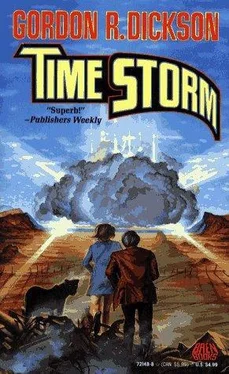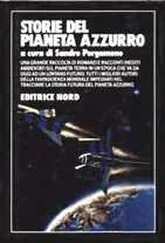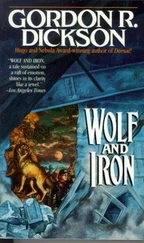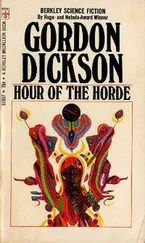Gordon Dickson - Time Storm
Здесь есть возможность читать онлайн «Gordon Dickson - Time Storm» весь текст электронной книги совершенно бесплатно (целиком полную версию без сокращений). В некоторых случаях можно слушать аудио, скачать через торрент в формате fb2 и присутствует краткое содержание. Год выпуска: 1992, ISBN: 1992, Издательство: Baen Books, Жанр: Фантастика и фэнтези, на английском языке. Описание произведения, (предисловие) а так же отзывы посетителей доступны на портале библиотеки ЛибКат.
- Название:Time Storm
- Автор:
- Издательство:Baen Books
- Жанр:
- Год:1992
- ISBN:0-671-72148-8
- Рейтинг книги:4 / 5. Голосов: 1
-
Избранное:Добавить в избранное
- Отзывы:
-
Ваша оценка:
- 80
- 1
- 2
- 3
- 4
- 5
Time Storm: краткое содержание, описание и аннотация
Предлагаем к чтению аннотацию, описание, краткое содержание или предисловие (зависит от того, что написал сам автор книги «Time Storm»). Если вы не нашли необходимую информацию о книге — напишите в комментариях, мы постараемся отыскать её.
Time Storm — читать онлайн бесплатно полную книгу (весь текст) целиком
Ниже представлен текст книги, разбитый по страницам. Система сохранения места последней прочитанной страницы, позволяет с удобством читать онлайн бесплатно книгу «Time Storm», без необходимости каждый раз заново искать на чём Вы остановились. Поставьте закладку, и сможете в любой момент перейти на страницу, на которой закончили чтение.
Интервал:
Закладка:
Half a mile down the highway I had to pull over to the shoulder and stop the car, again. Sunday was still prickly from the adrenaline of the battle. He wanted to lie in the back of the panel all alone and lick his fur. The girl, rebuffed by him, was suddenly sick. I helped her out of the car and held her head until it was over. Then I got her back into the front seat of the car, curled up there with a blanket over her.
“They were going to EAT me,” she whispered, when I covered her up.
It was the second time she had spoken, and all in one day. I looked at her, but her eyes were squeezed shut. I could not tell if she had been talking to me, or only to herself. I got the panel moving again and let her sleep. That evening when we camped, I tried talking to her myself. But she had gone back to being dumb. She would neither speak nor look at me. Foolishly, I even found myself feeling disappointed —even a little hurt at that. But of course that was just the wrong-headed early training at work in me again. I had been feeling good over the fact that she was coming out of her mental prison—as if that really mattered, one way or another.
The next day we headed south by west again. It was a bright, hot day, and I was feeling good. We had gotten off the asphalt on to a stretch of superhighway, and there was no one to be seen—not even anything on the road as inconsequential as an abandoned car. We were making good time; and Samuelson had helped me to fix myself on the map. We were close enough to the location of Omaha that, barring unforeseen delays along the road, we would reach it by sunset. When noon came, I picked a ramp and pulled off the freeway—just to be on the safe side in case someone unfriendly should be cruising it about the time we were having lunch —and found a patch of shade under some large, scraggly-limbed trees I could not identify.
We had hardly glimpsed the mistwall of a time change all morning—and the few we had seen had been far off, so far off that in the bright daylight it was impossible to tell whether they were standing still or moving. But obviously one had passed by where we were some time, since the storms started. About four hundred yards from the exit ramp of the highway the cross road ended abruptly in a clump of tall mop-headed palms, the kind you find lining the street boulevards in Los Angeles.
The palms and the big scraggly-limbed trees signalled that we were into a different time-changed territory than we had been earlier. Now that I stopped to notice it, for some time there had been a different kind of dampness to the air than that which comes from midwestern, mid-summer humidity. The softness of the atmosphere was more like that of a seacoast; and the few white clouds that moved overhead seemed to hang low and opulent in the sky, the way they do in Florida, instead of being high and distant like piled up castles, as they are in temperate zone mid-continental skies during the warm months.
It was a hint, I thought, to be on our guard against strange company. As far as I had been able to determine, it was only everything below the animal level that got changed by the time storms when they passed. I had begun to add up some evidence in what I saw to reach the conclusion that much of what I came across was several hundred, if not several thousand, years forward from my own original time. There was some evidence of extensive storm damage and geological change, followed by considered reforestation in a majority of the landscapes I moved through. There must have been massive loss of life in most areas at the same time or another, which accounted for the scarcity of most warm-blooded creatures, except for birds. Certainly topography and vegetation changed when a time line passed; and I had noticed fish in lakes that had not been lakes before the time change. But just where on the scale of life the dividing line was drawn, I had no idea. It would pay to be watchful. If, for example, snakes were below the dividing line, then we might suddenly encounter poisonous varieties in latitudes or areas where such varieties had never existed before.
I spent part of the lunch hour trying to get the girl to talk; but she was back at being voiceless again. I kept chattering to her, though, partly out of stubbornness and partly out of the idea that if she had loosened up once, she could again; and the more I tried to wear down the barrier between us, possibly, the sooner she would.
When we were done with lunch, we buried the tin cans and the paper. The girl and I ate a lot of canned stuff, which made meals easy; and I had fallen into the habit of feeding Sunday on canned dog food or any other meat that could be found. He also hunted occasionally as we went along. But he would never go very far from me to do it, and this restricted what he could catch. We buried our trash just in case someone or something might find the remains and take a notion to trail us. We got back in the panel truck and headed once more down the superhighway.
But it was exactly as if stopping to eat lunch had changed our luck. Within five miles the superhighway disappeared—cut off by some past time storm line. It ended in a neat lip of concrete hanging thirty feet in the air with nothing in the shape of a road below or beyond it but sandy hills, covered with cactus and scraggly trees. I had to backtrack two miles to find an exit ramp that led down on to a road that appeared to keep going off at an angle as far as I could see. It was asphalt, like most of the roads we had been travelling earlier, but it was not in as good shape as the ones that had led us through Samuelson’s small town and past the trailer camp. It was narrower, high-crowned, and weedy along the edges. I hesitated because, although the road angled exactly in the direction I wanted to go, there was something about it that filled me with uneasiness. I simply did not like the look of it. Here and there sand had blown across it, a smudge of gold on black—but not to any depth that would slow down the panel truck. Still, I slowed on my own and cruised at no more than thirty miles an hour, keeping my eyes open.
The road seemed to run on without end, which did nothing to allay that uneasiness of mine. There was something about it that was unfamiliar—not of any recognizable time—in spite of the fact that it looked like a backwoods road anywhere. The sandy hill-scapes following us on either side were alien, too, as if they had been transported from a desert somewhere and set down here. Also, it was getting hotter and the humidity was worse.
I stopped the panel, finally, to do a more precise job of estimating our position on the map than I could do while driving. According to the compass I had mounted on the instrument panel on our vehicle, the asphalt road had been running almost exactly due west; and the outskirts of Omaha should be less than twenty miles southwest of us.
As long as we had been on the superhighway, I had not worried; because a road like that, obviously belonging to our original twentieth century time, had to be headed toward the nearest large city—which had to be Omaha. Just as on the asphalt road at first I had not worried either, because it headed so nearly in the direction I wanted to go.
But it was stretching out now to the point where I began to worry that it would carry me to the north and past the city, without letting me catch sight of it. Certainly, by this time we had gone far enough to intersect some other roads heading south and into the metropolitan area. But we had crossed no other road. For that matter, we had come across nothing else that indicated a city nearby, no railroad tracks, no isolated houses, no fences, no suburban developments in the bulldozer stage of construction.... I was uneasy.
Laying out the road map on the hood of the car, I traced our route to the superhighway, traced the superhighway to what I believed to be the exit by which we had come down off it, and along the road that exit tied into—headed west. The road was there; but according to the map, less than a dozen miles farther on, it ran through a small town called Leeder; and we had come twenty miles without seeing as much as a road sign.
Читать дальшеИнтервал:
Закладка:
Похожие книги на «Time Storm»
Представляем Вашему вниманию похожие книги на «Time Storm» списком для выбора. Мы отобрали схожую по названию и смыслу литературу в надежде предоставить читателям больше вариантов отыскать новые, интересные, ещё непрочитанные произведения.
Обсуждение, отзывы о книге «Time Storm» и просто собственные мнения читателей. Оставьте ваши комментарии, напишите, что Вы думаете о произведении, его смысле или главных героях. Укажите что конкретно понравилось, а что нет, и почему Вы так считаете.












